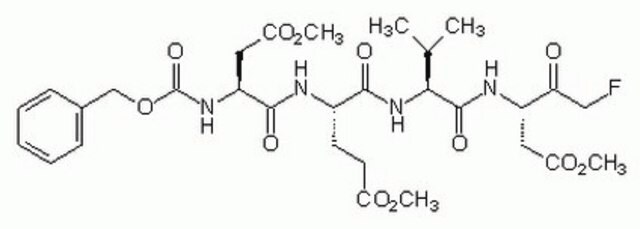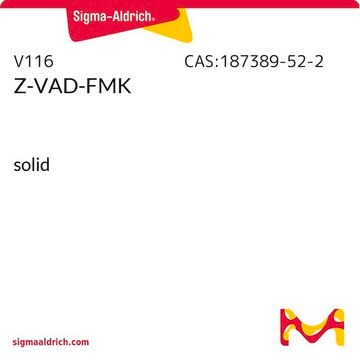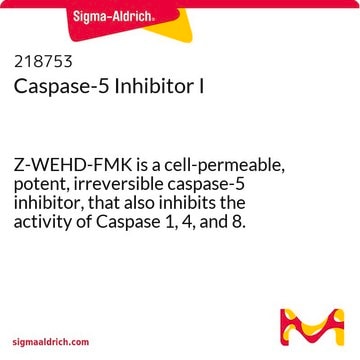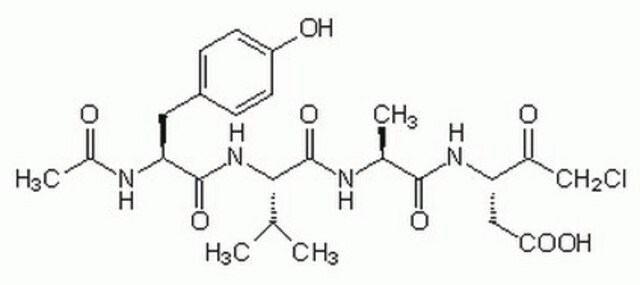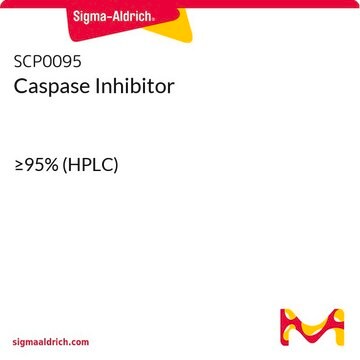C1230
Z-Ile-Glu(O-ME)-Thr-Asp(O-Me) fluoromethyl ketone
≥90% (TLC), powder
Synonym(s):
Z-IETD-FMK
About This Item
Recommended Products
biological source
synthetic (organic)
Quality Level
Assay
≥90% (TLC)
form
powder
solubility
methanol: 10 mg/mL
DMSO: 20 mM, clear, colorless to light yellow
shipped in
dry ice
storage temp.
−20°C
SMILES string
CC[C@H](C)[C@H](NC(=O)OCc1ccccc1)C(=O)N[C@@H](CCC(O)=O)C(=O)N[C@@H](C(C)O)C(=O)N[C@@H](CC(O)=O)C(=O)CF
InChI
1S/C28H39FN4O11/c1-4-15(2)23(33-28(43)44-14-17-8-6-5-7-9-17)26(41)30-18(10-11-21(36)37)25(40)32-24(16(3)34)27(42)31-19(12-22(38)39)20(35)13-29/h5-9,15-16,18-19,23-24,34H,4,10-14H2,1-3H3,(H,30,41)(H,31,42)(H,32,40)(H,33,43)(H,36,37)(H,38,39)/t15-,16+,18-,19-,23-,24-/m0/s1
InChI key
CTXDBLYOEUERAT-VUVYEONESA-N
Amino Acid Sequence
Application
- to study the activity of caspase-8 in porcine kidney cells
- to study its effects on porcine parvovirus (PPV)-induced caspase-3 activity in steroidogenic luteal cells
- to study its effects on retinal ganglion and astroglia in rat eyes
Biochem/physiol Actions
Features and Benefits
Storage Class Code
11 - Combustible Solids
WGK
WGK 3
Flash Point(F)
Not applicable
Flash Point(C)
Not applicable
Personal Protective Equipment
Certificates of Analysis (COA)
Search for Certificates of Analysis (COA) by entering the products Lot/Batch Number. Lot and Batch Numbers can be found on a product’s label following the words ‘Lot’ or ‘Batch’.
Already Own This Product?
Find documentation for the products that you have recently purchased in the Document Library.
Customers Also Viewed
Our team of scientists has experience in all areas of research including Life Science, Material Science, Chemical Synthesis, Chromatography, Analytical and many others.
Contact Technical Service
